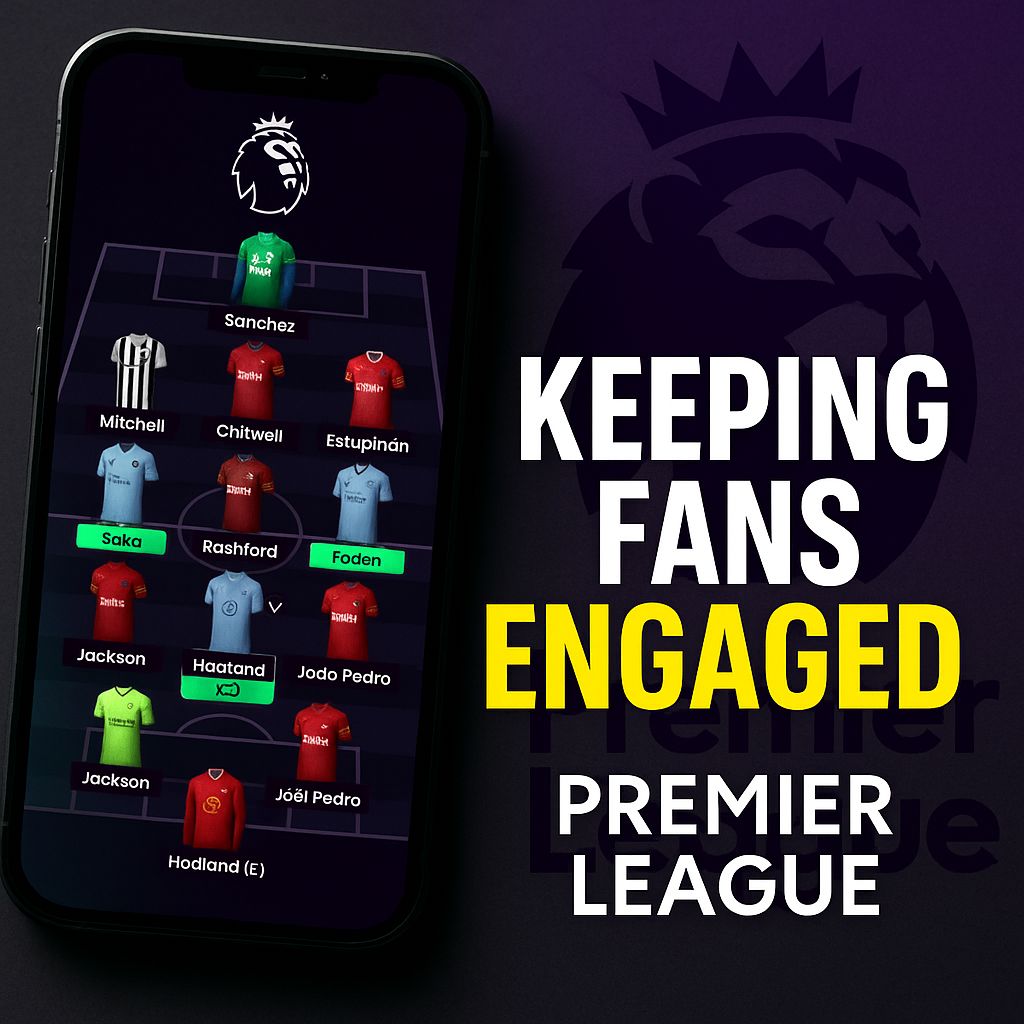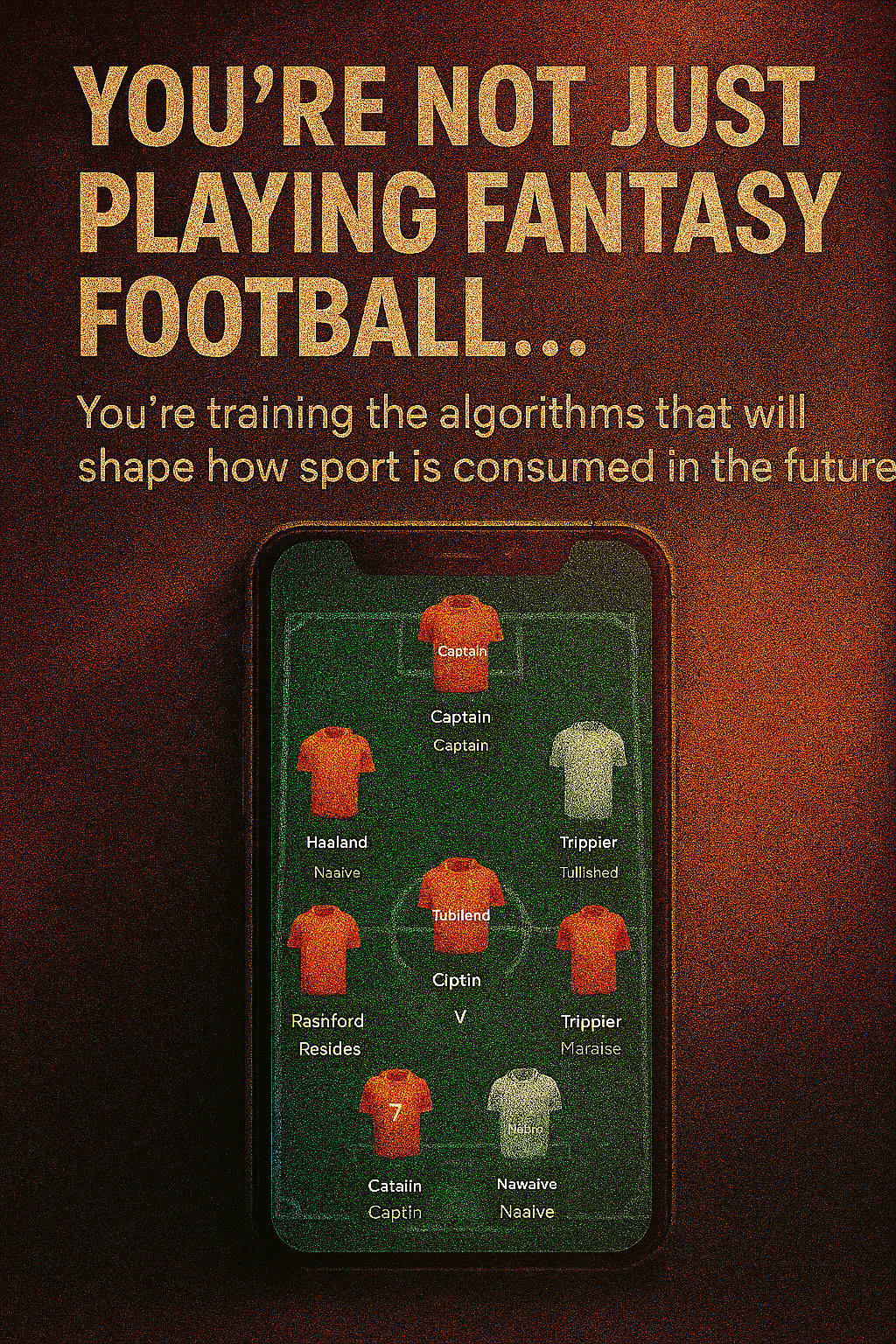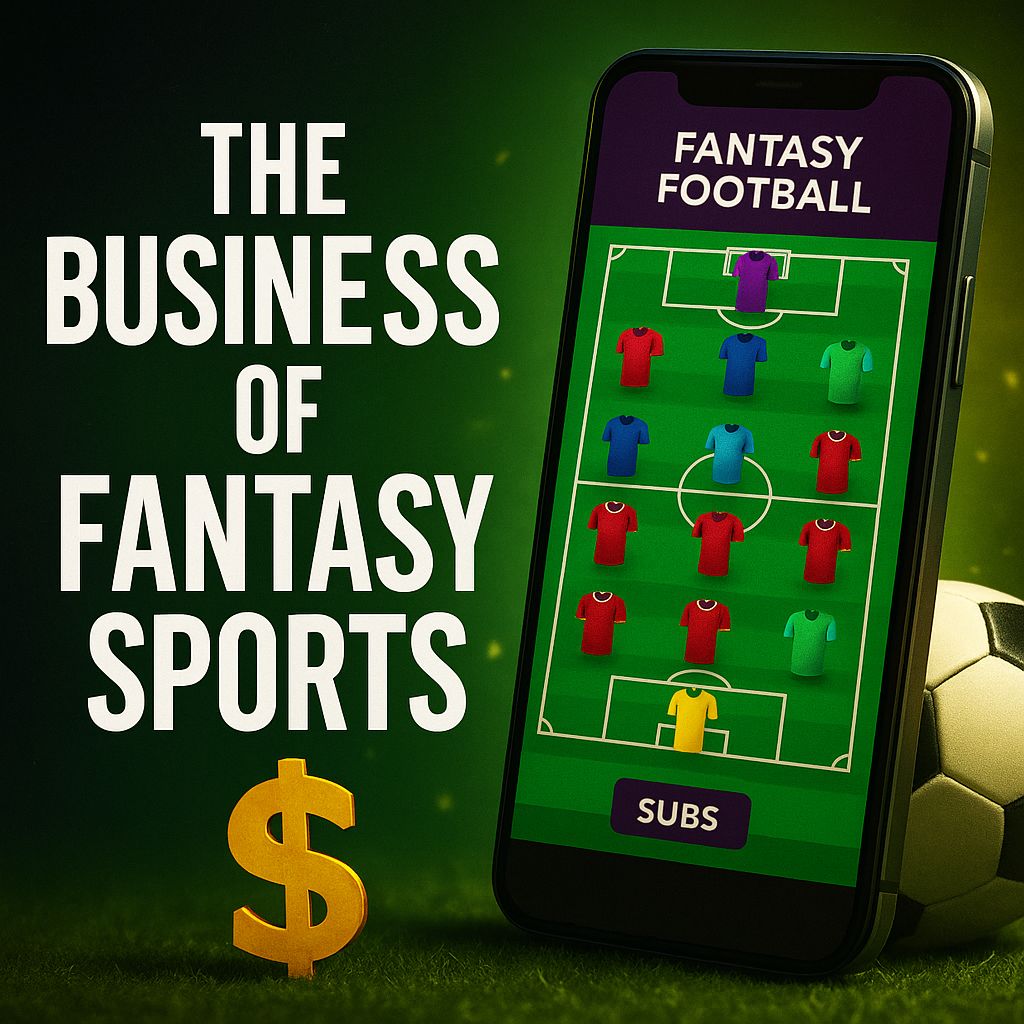
Summary
Fantasy sports have evolved from simple fan games into powerful business engines worth billions. With the global fantasy sports market projected to reach USD 61.2 billion by 2030, what started as Fantasy Premier League's modest 76,200 players in 2002 has become the sports industry's secret weapon for turning passive fans into engaged, monetisable audiences.
Quick Reads
Market Explosion: Fantasy sports market growing at 15.2% CAGR, reaching $61.2B by 2030
UK Dominance: FPL boasts 11M+ users, with 30-40% checking teams weekly
The American Playbook: DFS platforms like DraftKings used fantasy as a Trojan horse before the 2018 sports betting boom
Data Goldmine: Fantasy users generate behavioural data worth more than the games themselves
Global Expansion: Dream11 leads India with 110M+ users; emerging markets going mobile-first
Hello, Hi Visionaries!
Right, let's talk about how fantasy sports went from weekend pub banter to a multi billion pound industry that's quietly revolutionising how we consume sport. As someone who's played and taken part in this transformation firsthand, I can tell you it's not just about picking your XI anymore. It's about rewriting the entire playbook of fan engagement.
The Genesis: From Humble Beginnings to Global Phenomenon
Fantasy Premier League launched in 2002 with just 76,200 players and a simple prize: a VIP trip to a Premier League match. Fast forward two decades, and we're looking at a global fantasy sports market worth $24.85 billion in 2024, projected to hit $61.2 billion by 2030. That's a complete reinvention of how fans interact with sport.
The brilliance wasn't in the game mechanics (though those 2002 formations allowing 5-5-0 lineups were mental). The real genius was understanding that fans wanted to be more than spectators. We wanted to be scouts, managers, and analysts rolled into one. Fantasy sports gave us that power.

The UK Model: Free-to-Play, Impossible to Ignore
Fantasy Premier League remains the gold standard because it solved the fundamental equation: make it free, make it sticky, make it valuable. With over 11 million users and 30-40% checking their teams weekly, FPL has become the Premier League's most effective retention tool.
Here's what makes it brilliant from a business perspective:
Indirect Monetisation Mastery
Sponsorship Integration: Brands like EA Sports and Budweiser don't just advertise. They become part of the weekly ritual
Data Partnerships: Every transfer, captain choice, and bench boost generates insights worth millions to betting firms and media companies
Fan Conversion Pipeline: FPL users are primed for Premier League+, merchandise, and match attendance
The Premier League doesn't make direct revenue from FPL, but it's created something far more valuable: a weekly touchpoint with millions of engaged fans who consume content, generate data, and drive commercial partnerships.
The American Blueprint: From Fantasy to Betting Billions
The US market tells a different story. One where fantasy sports became the gateway drug to sports betting. When the Supreme Court struck down PASPA in 2018, fantasy platforms like DraftKings and FanDuel didn't scramble to enter betting; they simply expanded their existing infrastructure.
The sports betting market is expected to reach $110.31 billion by the end of 2025, and fantasy sports deserve much of the credit. Daily Fantasy Sports (DFS) platforms had already trained millions of Americans to think like bookmakers: analysing odds, managing bankrolls, and accepting calculated risks.
The data speaks volumes: FanDuel's top DFS users are 4x more likely to place sports bets. That's a carefully constructed conversion funnel.

The Global Expansion: Mobile First, Community Led
Whilst the West was perfecting desktop experiences, emerging markets leapfrogged straight to mobile. Dream11's 110M+ users in India prove that fantasy sports work everywhere, but they need to be built for local consumption patterns.
Key Insights from Global Markets:
India: Cricket-first approach with IPL integration driving massive engagement
Africa: High betting penetration but fantasy still emerging. It represents a massive opportunity
Latin America: Brazil exploring fantasy formats as CONMEBOL clubs seek digital engagement
Fantasy sports aren't just about football. They're about creating structured ways for fans to engage with any sport, anywhere, on any device.
The Data Revolution: Why Fantasy Users Are Digital Gold
Here's something that might surprise you: the real product isn't the fantasy game. It's the users. Every lineup change, transfer decision, and captaincy choice generates behavioural data that's worth more than advertising revenue.
Fantasy platforms now know:
Which players you rate before the bookmakers do
How you respond to injuries, form changes, and fixture difficulty
Your risk tolerance and spending patterns
Your social network and influence within fantasy communities
This data powers everything from targeted sponsorships to betting odds, player valuations, and even broadcast decisions. We're not just playing fantasy football. We're training the algorithms that will shape how sport is consumed in the future.

The Business Playbook: What Every Sports Professional Needs to Know
For Leagues and Clubs: Fantasy formats aren't games. They're fan data collection systems. Build them, own them, monetise them. The alternative is watching third parties capture your fan relationships.
For Brands: Integration beats interruption. Sponsor fantasy content, don't just advertise around it. The most successful partnerships feel like part of the game experience.
For Broadcasters: Fantasy stats should drive your coverage. When 11 million people care about bonus points and expected goals, those metrics become content gold.
For Startups: The white-label opportunity is massive. Smaller leagues lack the resources to build fantasy platforms but desperately need fan engagement tools. Be their solution.
The Competitive Edge: Why This Matters Now
With AI reshaping the market landscape and new fantasy sports apps driving demand, we're entering Fantasy Sports 2.0. The basic premise remains the same. Give fans agency in their consumption but the execution is becoming more sophisticated.
Future winners will combine:
Behavioural psychology (why do users make certain decisions?)
Community building (how do we create deeper engagement?)
Data monetisation (what insights can we extract and sell?)
Cross-platform integration (how do we connect fantasy to betting, merchandise, and content?)
The Bottom Line
Fantasy sports have evolved from weekend entertainment to essential business infrastructure. They've taught us that the most valuable fans aren't the loudest. They're the most engaged. And engagement, as we've learned, is infinitely more valuable than attention.
The question isn't whether fantasy sports will continue growing. With a 15.2% CAGR projected through 2030, that's already answered. The question is whether your organisation is building the fantasy first fan experiences that will define the next decade of sports business.
Because in a world where every screen competes for attention, the platforms that turn fans into participants don't just win. They dominate!
Key Takeaways for Your Business:
Fantasy is fan CRM disguised as entertainment—build or buy accordingly
Data trumps direct revenue—monetise insights, not just gameplay
Mobile-first markets are the future—design for thumbs, not cursors
Community beats competition—social features drive retention more than prizes
Cross-platform integration is everything—fantasy should connect to every fan touchpoint
What's your take on the fantasy sports revolution?
